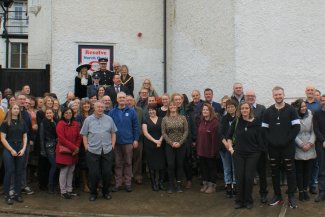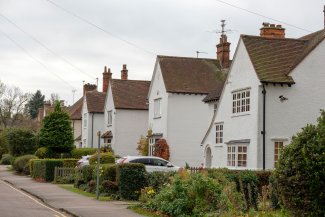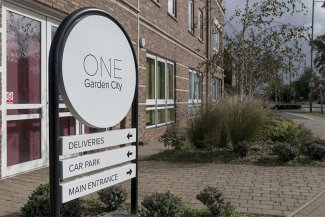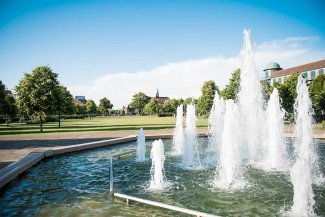We recently hosted a two-day Garden Cities Congress in partnership with the Gascoyne Cecil Estate at Hatfield House and the University of Hertfordshire.
The Congress is a collaboration between Letchworth Garden City Heritage Foundation (UK), University of Hertfordshire (UK), École Nationale Supérieure d’Architecture de Grenoble, Université Grenoble Alpes (France) and City of Genk Task Force Garden City 2.0 (Belgium).
60 officials and advisors from 23 organisations and universities in England, France and Belgium came together to debate and work on solutions for ensuring planned settlements from the early 20th century can meet modern challenges of sustainable living and climate change.
Many of these neighbourhoods were originally inspired by the Garden City principles and are now all facing similar challenges including towards future-proofing heritage building stock.
Key themes: Retrofitting heritage buildings, sustainable transport, potential re-use or re-development of heritage buildings and sustainable local food production
Leading experts in smart mobility, sustainability, circular economy, re-use of heritage buildings, urbanism and planning participated, lead workshops and invited the delegates to actively participate.
Day One
This was spent discussing case studies and visiting projects on the Gascoyne Estate in Hatfield, followed by an afternoon session on retrofitting existing buildings led by representatives from Oxford University and Max Fordham LLP. Retrofitting existing heritage buildings to improve their energy performance, whilst protecting their character was highlighted as a shared issue with all at the congress.
During this session, participants shared case studies, experiences, outcomes, and best practice. This is a topic that we continue to research to find the right balance between heritage and sustainability, Design Principles and the guidance included in our energy efficiency guide.
Day Two
The day began with a walking tour of Letchworth followed by sessions on sustainable transport, re-use of historic buildings and sustainable local food opportunities, hosted by The Cloisters. These sessions were led by the University of Hertfordshire and a series of external advisors, supported by case studies from the delegates.
The congress is the beginning of further engagement with our UK and European partners, and we expect there to be a similar events and discussions in 2023. We will use the information gathered through these discussions to further develop our approach for our own property portfolio and the advice we give homeowners. The team has taken away a lot of great ideas to work on for the future.
The results of this congress will be followed by an open-source book publication as well as ongoing collaboration on projects and ideas.




